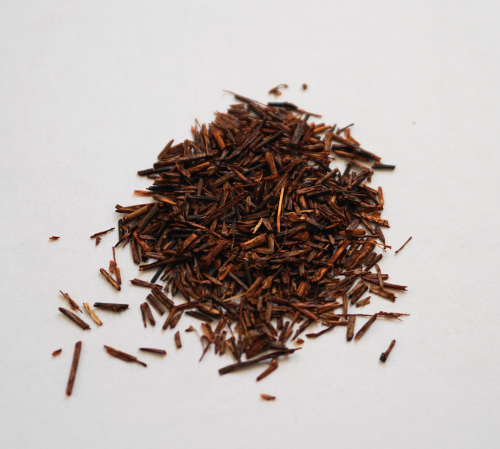Rooibos (pronounced ROY-boss) isn’t the most popular tea in America but it is the one of the most profitable teas in Africa in both health and wealth.
In the 18th century, Swedish naturalist Carl Peter Thunberg toured around the world to document people in the Age of Enlightenment. His expedition to Western South Africa would bring many things, including several “scientific observations” that would breed harmful stereotypes about Africans and folk throughout the Global Majority that would fester for centuries.
However, one of his observations—people cutting the rooibos tea from mountaintops and bringing them down to grind and sun dry—would expose an African herbal infusion to the world.
Skipping forward to today and rooibos is all the rage. It even got a splashy feature in “Shape” magazine with the lead saying “There’s a new super-beverage in town…”. New? West Africans have enjoyed rooibos for centuries.
The tea, which is more of an herb, is also called “bush tea” or “redbush tea” and shares more in common with hibiscus herbal infusions. From Thunberg’s discovery inciting European settlers to drink the herbal infusion as a substitute for black tea to Starbucks globally experimenting with the tea as more of an “exotic” beverage, rooibos offers an a fragrant, sweet alternative to other teas.
It is naturally decaffeinated, herbal and usually carries a spicy-sweet flavor that makes it taste more like a treat rather than a herbal antioxidant (often prepared with sweetened milk or cinnamon). Next to green tea, it is the highest in antioxidants.
If rooibos is so healthy—the tea has been proven to cut down inflammation, decrease Alzheimer’s risk, and lower cholesterol—why isn’t more popular in the United States?
Rooibos is a good way to consume tea antioxidants without the effects of caffeine. Unlike green or black tea, it carries lower levels of tannins, which interfere in nutrient absorption and can potentially help pregnant women and anemic people absorb iron. Without oxalic acid (which green and black tea have), it is highly recommended for those with kidney issues. The South African Cancer Association has named the drink a leading source of anti-cancer compounds.
As much as the tea is imported internationally, the plant only grows on the Cape of Good Hope and entire South African communities are dependent on it.
While the health benefits have not been wildly studied, one of the most potent uses of rooibos bush tea, in my experience is simple: a semi-sweet, vanilla-like accompaniment to dinner. Without the caffeine, it provides the digestive comfort needed to fall into a comfortable sleep after a big meal.
Originally posted 2018-08-29 00:16:40.








